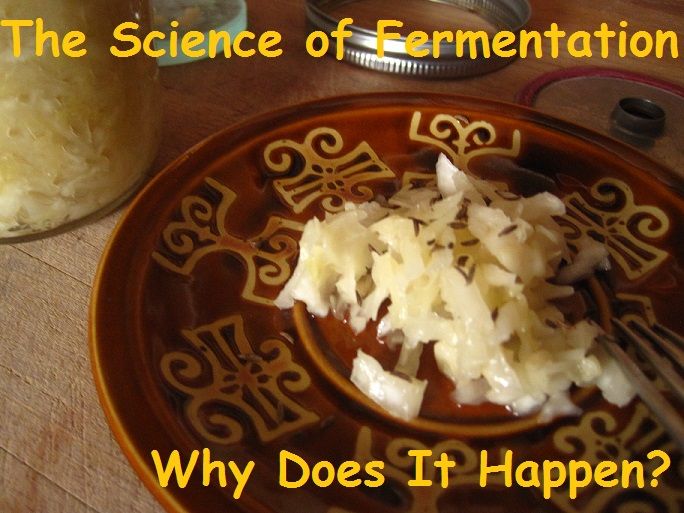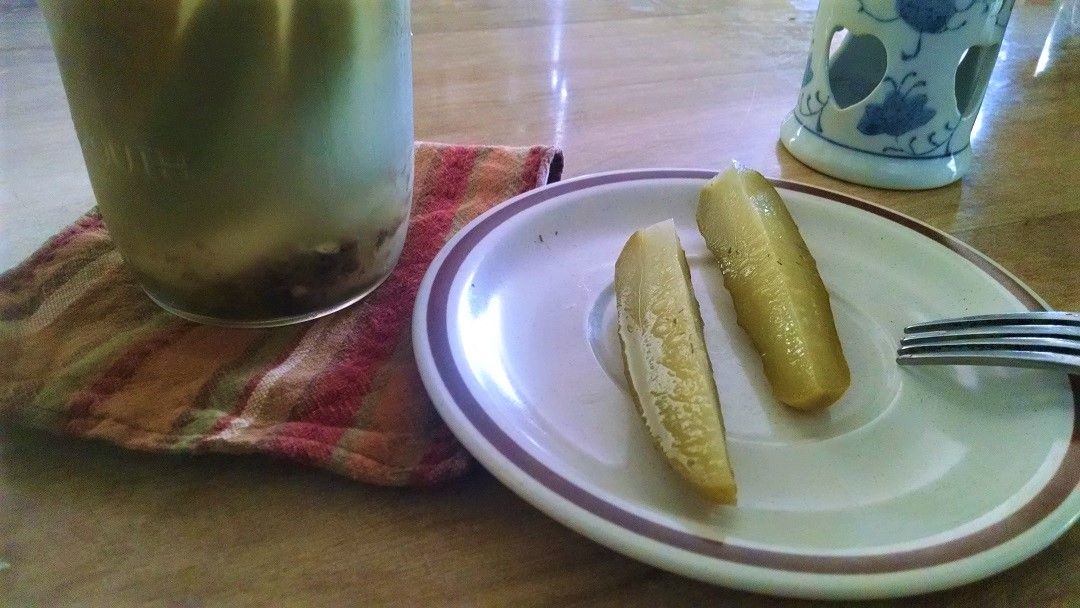Homestead Science: The Basics of Fermentation
In this, our first edition of the science of fermentation, we are going to look at the “why” of fermentation. Of course, there are many different “whys” that we could investigate. From a human perspective, we could look at why it is good to eat fermented food; or from a food storage perspective, we could look at why fermentation is a good method of preservation. These are certainly very good and interesting questions in their own right, but today we are going to tackle a different question.

We are going to look at why the microorganisms responsible for fermentation ferment food. Why does yeast ferment bread to make sourdough? Why do the grains of bacteria and yeast work together to ferment milk to make kefir? And why does our beloved SCOBY make us the delightful drink we call kombucha? Is it because they are all benevolent creatures who care for the health and gastronomic delight of us humans? I mean, they selflessly work 24 hours a day, 7 days a week, without holiday breaks and never go on strike. How much more altruistic can you get than that? They are such good little soldiers!
Well, the truth is far from such a Utopian ideal. The truth is, they are doing it for themselves - they do it to live.
What are Heterotrophs?
All of the organisms responsible for fermentation are what we call heterotrophs. This is a fancy-sounding science word that is made up of two roots that give us a clue to its meaning. The first root is “hetero” which means “other,” and the second root is “troph” which means “nourish.” When you put these two roots together you get “other nourish.” And that gives us our clue. Heterotrophs are organisms that get their nourishment from other living things; in other words, they can’t make their own food. There are many different types of heterotrophs on this planet of ours: humans, cows, and, yes, even the yeast in our beloved sourdough starter. Yet even with such variety, all of us have something in common - our never-ending quest for food.
The Purpose of Food
But why do we need to eat food at all? What is the purpose to eating food? From a human standpoint, there are many reasons for eating food that vary across the diverse cultures we see on Earth, but from the standpoint of other forms of life, there are really only two reasons. The first is to obtain nutrients, and the second is to acquire energy.
Heterotrophs eat food in order to obtain nutrients. We lump many things under this rather austere label of “nutrients,” but these chemicals are more varied than we can ever know. Basically, nutrients can be looked at as the building blocks of life. We put our physical bodies together using these chemical pieces.
Heterotrophs also eat in order to obtain energy. While our physical bodies are made up of nutrients, energy is what gets these physical machines to run. All forms of life run on the same chemical for energy: ATP (its full name is adenosine triphosphate, if you wanted to know). Yet, all energy comes to the earth in the form of sunlight. So the question is, how to go from sunlight to ATP? Plants are the first step. They take the energy in the sun’s light and put it into chemicals like sugar. Heterotrophs then eat those plants, break down the sugar, capture the energy, and store it as ATP.
Bringing It All Together
So how does fermentation relate to all of this? Well, fermentation is one method that heterotrophs use to break down sugar to capture its stored energy and make ATP! The yeast and bacteria responsible for fermenting all of the products that we use on a daily basis ferment these foods in order to get energy. Our sourdough starters get it from the wheat flour that we give it every day; our SCOBYs get it from the sugar that we add to the tea; and the cabbage provides plentiful nutrients and energy to the lactic acid bacteria making our sauerkraut.
So, while they might not be quite as altruistic as we first thought, yeast and bacteria are still amazingly-designed creatures. Sure, they are just trying live, but in their quest to survive, we can partner with them to make many a tasty treat.

Ferment on, my friends!
This is the first in a series of posts we'll be putting up on how the different types of fermentation work. Andrew first wrote this article for the Fermentools.com blog that we contribute to (can you tell he used to be a science teacher?). Check out the original article in its context here! http://www.fermentools.com/blog/why-micro-organisms-ferment/
Other places to find Simple Life Homestead Online!
Blog: http://www.simplelifehomestead.com/
YouTube: https://www.youtube.com/channel/UCwDzB6sjt8sZfB9hVUojxrQ
Facebook: https://www.facebook.com/SimpleLifeHomestead/
Twitter: @SLHomestead
Are pickles fermented? I thought they were...pickled...or is that a type of fermentation?
That is a really good question! There are two ways to make pickles. You can either make them by adding a vinegar/salt/spice solution to cucumbers and letting them sit in the refrigerator for a few days. These are called refrigerator pickles and are the main sort of pickles you will find in the store. However, in the olden days, people made pickles just using a mild saline (salt) solution with the cucumbers. Then you let them sit for a while (depending on temperature and such). The bacteria will actually break down the sugars in the cucumber to make acetic acid, which is vinegar, and depart that oh so wonderful zippy sourness to real pickles.
I'll have to ask @prairiepinner to try the older style! She made some awesome refrigerator pickles this year, but I would love to try the other ones. Thanks for answering my question!!
Fermented or old style dill pickles are to die for. Try them. You won't look back.
nice post
We started to experience this at home a couple of years ago. Not later than yesterday, we prepared some homemade Korean Kimchi :p
A really informative article. I am looking forward to more.
Love it really want to get into fermenting. Waiting for some good tips :)
That ... is one badass intro post wow! 👏👏👏 What an incredible and fascinating life story (also the ultra-ripped jeans are hilarious 😁)
Welcome to Steemit. You have clearly been a success in the other areas of your life; looks like that will definitely carry over to your Steemit career.
Noticed you didn't mention family after you became an adult. Obviously, that could simply be none of our business.
So what do you think of Steem the currency itself/cryptocurrencies in general? It occurs to me that something similar could be applied to the music industry, rewarding muscians and producers and perhaps even customers for their participation just as Steem rewards people for
This is one of the weirder copy+paste comments I've ever seen! Not sure why you put this comment on so many unrelated posts, including mine, but if you'd like to actually read the article and have a meaningful conversation, you'll have a much better time on Steemit. Try again!